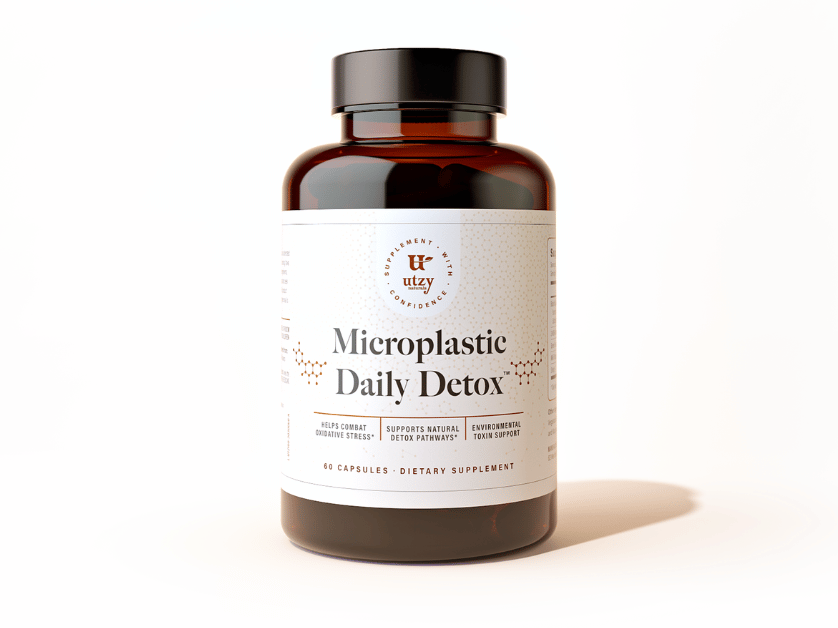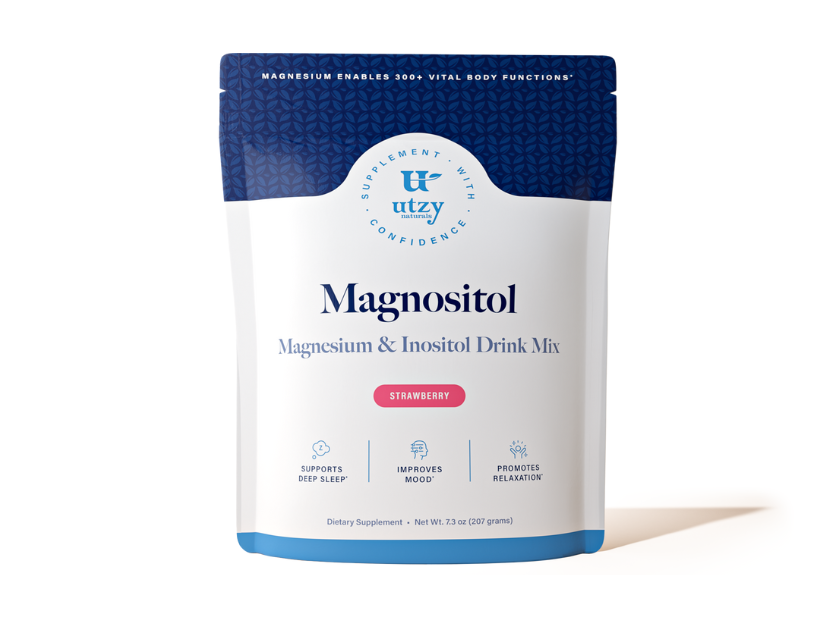shop
learn

Fish Oil Marketing Myths
May 19, 2021 4 min read
By now, you have likely heard that fish oil has many health benefits.
While there is so much awareness about the benefits of fish oil, there is not as much awareness as to what one should look for in determining a quality fish oil supplement.
Unfortunately, marketers in the fish oil industry create confusion in what to look for in an effort to get your attention (and dollars) for their products.
That is why we wanted to tear down some common marketing myths around fish oil and equip you to know how to determine if a fish oil product is a quality one.

Value Size bottles
We’ve all seen them. The mega-size bottles, bundled as a buy one, get one special at a price that seems too good to be true.
So called value warehouses tend to be focused on everyday low prices because they are interested in moving volume.
In order to produce these value-size bottles, manufacturers need to process large volumes of fish oil, store them for longer periods of time, and ensure they are preserved to ensure the retailer has a long enough shelf life to sell through the product.
The reason many people seek out fish oil is for its benefits to balance out pro-inflammatory fatty acids found in their diets. The longer an oil sits, the more prone it is to oxidation. Ironically, this means that consuming an oxidized fatty acid is counterproductive to why you would want to take it in the first place.
A 2015 study examined 171 different over-the-counter omega-3 products for oxidation safety. Researchers found that 50% of the products, “failed at least one of the voluntary safety standards recommended for primary and secondary oxidation.” (1)
These types of studies have led to industry groups to call for manufacturers to sell smaller bottles of omega-3 products to reduce the risk of consumers using products that have oxidized.
An ideal fish oil would be produced in small batches with as little storage and transport possible. Some products, like Utzy’s Omega-3 Fish Oil is processed on shore the same day that the fish is caught in the ocean. This catch to capsule process reduces that amount of storage and transport needed which ensures a fresh product for the consumer.
One would be wise to avoid the value-size bottles to ensure the product is as fresh as possible.
Doses and Serving Size
Omega-3 requirements will vary from person to person depending on their individual health needs.
If you were to look at the typical bottle of fish oil found in most retailers, the manufacturer will typically list the amount of omega-3 fatty acids on the front of the label. For example, a popular retail brand will list “1000 mg” on the front of the label, however, that is not the actual omega-3 content of each softgel.
When evaluating a fish oil product, you will want to turn the bottle around and look at the supplement facts box.
The first thing to evaluate is the serving size. The front of the label may be 1000mg, but that may be in 2 softgels, meaning each softgel contains 500mg.
Once you’ve broken the serving size down to a single softgel, the second thing to evaluate is the EPA and DHA content per softgel. Most clinical studies done on fish oil are looking at the amounts of polyunsaturated fatty acids (EPA and DHA) content, not the total omega-3 content.
If your specific health needs require a specific amount of EPA or DHA, it is important to look at the actual content of each polyunsaturated fatty acids in each capsule for each capsule. This will ensure you are receiving the effective amount for your individual needs.
To illustrate this, Utzy’s Omega-3 Fish Oil contains 800mg of total Omega-3 fatty acids per softgel. Broken down further, each softgel contains 430mg of EPA and 290mg of DHA.
A popular competitive product contains 300mg of total Omega-3 fatty acids per softgel. The EPA and DHA content for each softgel is 250mg.
This means that you would need to take 3 of the competitive softgels to get the amount of EPA and DHA found in 1 softgel of Utzy’s Omega-3 Fish Oil.

Ethyl Esters or Triglycerides
Omega-3 fatty acids are naturally found in the fish as a triglyceride.
In order to purify and concentrate the oil, the fatty acids are broken down from their naturally occurring state and turned into a semi-synthetic ethyl ester. Many fish oil companies encapsulate and sell the oil in this form because it is less expensive than converting it back into its natural triglyceride state.
This is important because research has found that the triglyceride form of fish oil is not only more bioavailable to the cell, but incorporates into the cell significantly better than an ethyl ester.
This means that your body will absorb and use more from a triglyceride form of fish oil than the less natural ethyl ester form.
Because the process to convert the omega-3 fatty acids back into its natural state is more expensive, there is no advantage for a manufacturer to do so and not list it on the label. In other words, if “triglyceride from” is not on the label, it is likely an ethyl ester form. You can always confirm with the manufacturer what form their formulas contain.
Redefining Value
While the big box retailers may define value as simply the cost of a product, it is much greater than that.
When determining the value of an omega-3 fatty acid product, one ought to consider all of the products that go into making a quality product rather than shopping for the best financial deal.
A quality fish oil product should contain a high dose of omega-3 fatty acids in a natural triglyceride form. Packaging size should take into account that oils naturally oxidize the longer they sit.
Looking past these marketing efforts will ensure that the fish oil supplement you use is the best option for your needs, not that of the supplement manufacturer or retailer.
Leave a comment
Comments will be approved before showing up.
Also in Health
Subscribe
Sign up to get the latest on sales, new releases and more …
Join the Utzy Naturals Club!
Sign up and get the latest on sales, new releases, and more...





